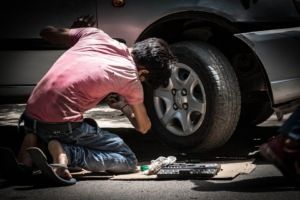News
New car technology pushing local mechanics towards extinction
This article is more than 9 years old.
Data in new cars in danger of creating a monopoly for car-producer dealerships

Local grease monkeys staring into the abyss (photo: Pixabay)
These days, cars have a lot of technology installed in them that give mechanics a better insight into how a car performs and what can be done to fix possible issues.
The problem is that this important information is only fed to the larger car-producer dealership workshops. The data is not accessible to the local mechanics in Denmark and they are being pushed to the brink as the monopoly on data continues to expand.
“If they don’t ensure that the small mechanics gain access to this data to understand what the problems with the cars are, then it’s just a matter of time before they become extinct,” Torben Lund Kudsk, a spokesperson for the Danish car owner organisation FDM, told DR Nyheder.
READ MORE: Politicians looking to punish parking sinners with wheel locks
EU problem
In Denmark just the newest cars contain the technology in question, but within a few short years it will become a standard for all automobiles.
“When Danes change their cars we can expect they will all contain the necessary data,” Kudsk warned DR Nyheder.
The data problem has become a massive issue all over Europe, with car-producing nations on one side trying to protect their interests and the rest of the EU member states clamouring for more transparency.
The Danish car industry has recognised the challenges involved with the new data.










































